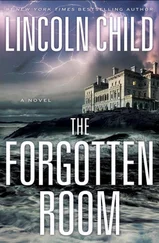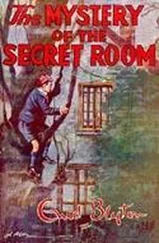The only remedy seemed to be to do favors for others, so that he wasn’t Candy’s saint, to neutralize the act of giving by giving more.
Betty LaFrance asked Gordon if he would mail a letter for her, to an old lover, she explained, who was in a California state prison himself. Prisoners were not allowed to contact other prisoners without express approval from the Department of Corrections, this Gordon knew to be true, but he figured Betty probably imagined this romance she told him about. She’d been yelling to get the guards’ attention the first time Gordon met her. “Officer!” she’d called. “Please tell the parking lot attendant to reserve a spot for my hairdresser!” She snubbed the other women on death row, told Gordon they were not of her caliber. Once, she asked Gordon if he’d ever flown business class on Singapore Airlines. When he said no, she seemed to pity him. She was a deluded woman sentenced to die. He felt for her. He sent the letter.
He bought seeds for a student in his class who gardened. She had brought Gordon fresh mint as a present, and when Gordon asked her where she got it, she said it rode into the prison on old lumber, four-by-twelves they were using for construction. She’d replanted it, watered it. She told him she watched the sky and waited for birds to excrete seeds, and germinated them secretly in wet paper towels. Rules were such that no plants were supposed to grow. But the captain on D yard, where she lived, let her have her plants. She was a lifer. Gordon gave her a seed packet of California poppies. She put her hands to her face to hide her tears. “This is a God shot,” she said. “Thank you for this God shot.” Which started the cycle over again, the discomfort, their outsized gratitude. The packet of seeds had cost him eighty-nine cents.
And so he had been sending books to Romy Hall. You go on Amazon. Click a button. What was twenty bucks to him, if spending it meant several weeks of freedom of thought for someone in prison? But looking into her personal life in the outside world, calling a number on her behalf: that was different. It was honest-to-god meddling, not just in her life but in his own, too.
He put the paper she had given him on his coffee table. A phone number and the name of her child. He did not call, and to his relief, or his mixed relief, she did not ask him about it. They chatted, but about insignificant things. She thinks I won’t help her, that I don’t care. But he wanted her to know that he did care, and that it was not nothing to him that she had asked him that favor.
He sat on his couch, picked up the scrap with the number, and put it back down. Instead of calling it, he went online and figured out how to order a new paint set for Geronima from a catalogue supplier. Something easy, that required no deep deliberating.
Geronima brought the new paint set to class and worked diligently for several weeks before approaching Gordon.
“I’d like to show you what I’ve been working on. Portraits, but the kind you probably prefer.”
“That I prefer?”
“Well, most people prefer.” She showed him. They were skillful illustrations, immediately recognizable. Herself. London. Gordon. Romy. Everyone in class. They had the economy of caricatures. She turned the page to an unfamiliar face staring from the paper, the cheeks streaked in tears. “That’s Lily, who lives on my unit and reminds me of my younger sister. I don’t have a picture of my sister, so I asked her to pose.”
In spring I began hearing disagreeable noises and machinery, sometimes surprisingly loud, depending upon meteorological conditions. Thawing winter meant otherwise pleasant excursions were ruined for me by the moaning and howling of these iron monsters, audible for miles over the hills. Made up my mind to get revenge. But it was difficult to determine just where the noise was coming from. Had to wait for summer anyway because my traps could have easily been fouled with snow. But later in spring, the noise stopped. I began hearing it again in summer. I followed the noise, to learn it came from a logging operation at Willow Creek drainage. Logging off one of my favorite wild spots. Pushing trees over with bulldozers instead of cutting with saws. I watched from a high rock where I wasn’t visible. After they’d finished for the day, the whole surface of the ground was stripped right off. I came down to the worksite after they’d gone. A five-gallon can of oil was sitting on the machine they used to pick up logs and load them on trucks. I poured oil over the machine’s engine and set fire to it. I spent a pleasant night sleeping on top of the mountain, and came home leisurely in the morning. I felt so good having done this, though a mite uneasy over the risk of being suspected.
Doc had been to Las Brisas the night he got the call about the burglary of a pawnshop on Beverly in Filipinotown. The pawnshop’s silent alarm was going off. Doc decided to pull up with no lights or sirens, in case the scene was still active.
The suspect, he sees, is still there. The guy’s car, a beat-up Chevy Caprice, will not start. He keeps turning the key. The starter whines but won’t catch.
Doc sneaks up on him, aims his service revolver at the guy’s head, and asks him politely to get out of the car. His voice, Doc’s, becomes gentle. Like the voice of Mr. Rogers, but not an imitation of someone on TV. It is a voice that fits Doc like a glove. Doc is clean-cut, looks more like a dentist than a cop. He thought of his image in terms of basketball: this was the early 1990s, and if there were guys on the force using street style and street language—like the Lakers in their knee-length shorts—Doc, as he thought of it, played for the Utah Jazz, a team whose point scorers were white men in fitted shorts. Men who, like Doc, also resembled dentists, and spoke intelligently about strategy and technique, unlike the retards who got on camera for postgame wrap and said they won by taking their time and picking their shots. Taking my time, picking my shots. That’s all most of the players ever said, like it was something they memorized. But really, it was a good formula. It was how Doc did things, too.
Doc says, “Sounds like you’ve got car trouble.” Then he calmly asks the suspect how the burglary went.
“The what?” The guy is confused. Black dude. In Doc’s line of work, black people give him the most trouble. Or rather, he gives them the most trouble.
Doc puts the guy spread-eagle against his clunker and takes his stolen loot off the front seat, which is in a pillowcase like Doc remembered using to trick-or-treat when he was a boy, to get the most candy, fuck everybody else. The pillowcase is full of weapons, watches, jewelry, the usual. The guy has a gun on him, so Doc takes that as well. It’s a Glock. Doc is pleasantly surprised this guy in a trashed car that won’t start has a decent weapon that Doc might keep instead of sell.
Doc’s police radio statics out a message: backup is on its way to Beverly and Vendome. Backup? He has not called for backup. But according to dispatch it is on its way. Maybe it’s a ghost patrol. That’s a scam people were running. The commissioner wants so many cars out in the division. Well, screw the commissioner: officers all over town were fooling dispatch into thinking they were out on calls while they sat around eating and gambling, or going to the gym, or banging box in an hourly joint down on Western, the Snooty Fox, a popular spot for guys on the force. It was clean, Doc wants you to know, not your typical Venus flytrap for rock smoking and five-dollar head. The Snooty Fox was classy, with suites and a good ice machine, and they had mirrors on the ceiling so you could watch yourself. (Doc considers it an oddity that a mirror would be for looking at anything but yourself. He would have these conversations with the guys down at Rampart, and Doc always said the same thing. “If I want to see what some whore looks like from behind I turn her over. I don’t need a mirror for that. What I can’t see without the mirror is me .”)
Читать дальше








![О Генри - Меблированная комната [The Furnished Room]](/books/415396/o-genri-meblirovannaya-komnata-the-furnished-room-thumb.webp)
![О Генри - Комната на чердаке [The Skylight Room]](/books/415780/o-genri-komnata-na-cherdake-the-skylight-room-thumb.webp)


